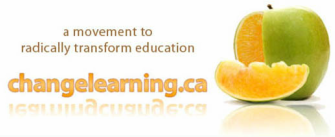|
Society, going back to the stage of the diaspora out of Africa, needs both the impatience, and the energy, of adolescents to keep it vital. 21st Century Learning Initiative
0 Comments
Society as a whole (and certainly not simply schools on their own) has to rethink how to use the creative energy of adolescence to the overall good of the community. 21st Century Learning Initiative
Youngsters who are empowered as adolescents to take charge of their own futures will make better citizens in the future than did so many of their parents and their grandparents who suffered from being over-schooled, but under-educated in their own generations. 21st Century Learning Initiative
Bad teaching doesn’t just happen. It’s practically demanded by systemic factors. Alfie Kohn, Writer and Speaker
Schooling is preparation for adult citizenship, but one’s engagement with the larger society does not have to be deferred until one leaves school. It can and should begin in school, where it can be guided by skilled professionals and linked to one’s intellectual development. Charles Ungerleider, Failing Our Kids (2003)
….concluded that factors outside of the school are four times more important in determining a student’s success on standardized tests than are factors within the school. Kellogs Corporation’s Learning Now program (1977)
…so-called intangible assets and “soft interpersonal skills” initially learned in the family and community, and then reinforced in the school, are now seen as crucial in the emerging new economy and society. Ron Faris, Learning Community by Community:
Preparing for a Knowledge-based Society, Education Canada, Vol. 43 No. 1 (Winter 2003) Abundant research studies of health determinants, neuroscience, early childhood, and human and social capital affirm the substantial influence of non-formal learning in the family and community. Ron Faris, Learning Community by Community:
Preparing for a Knowledge-based Society, Education Canada, Vol. 43 No. 1 (Winter 2003) |
Categories
All
Archives
August 2015
|

 RSS Feed
RSS Feed
